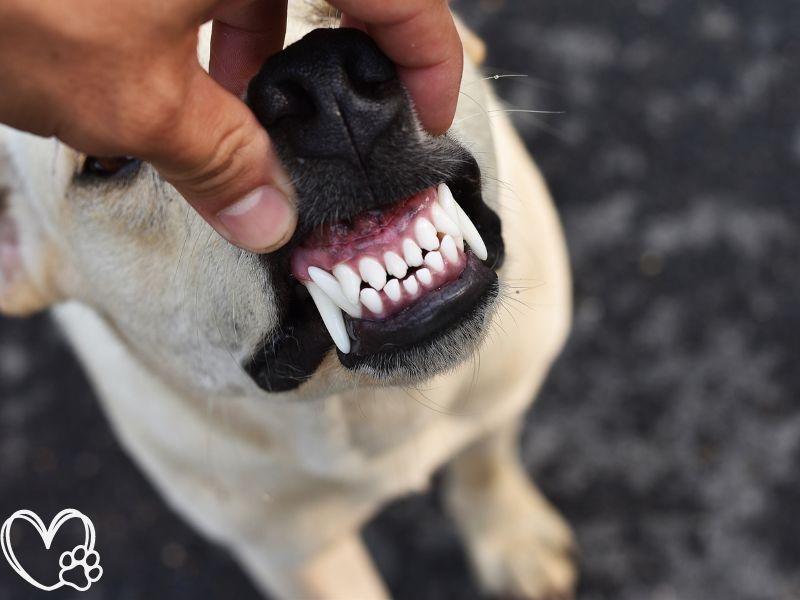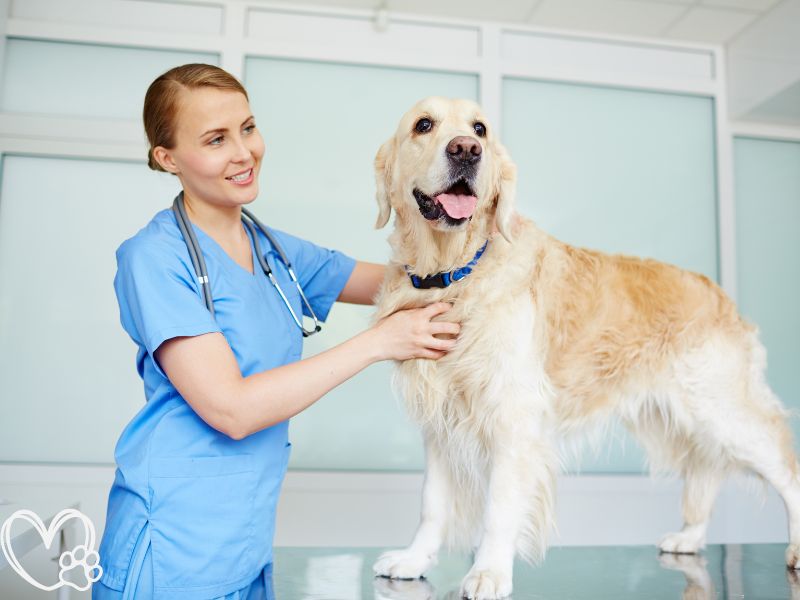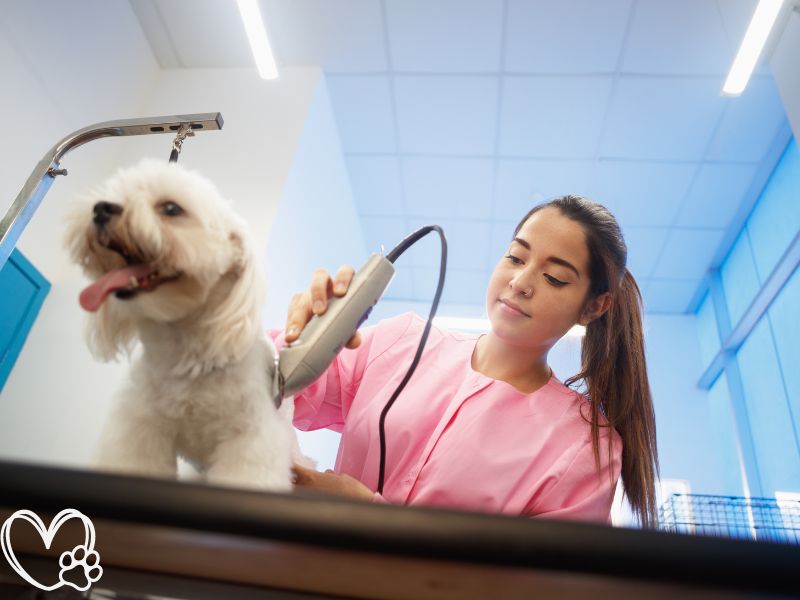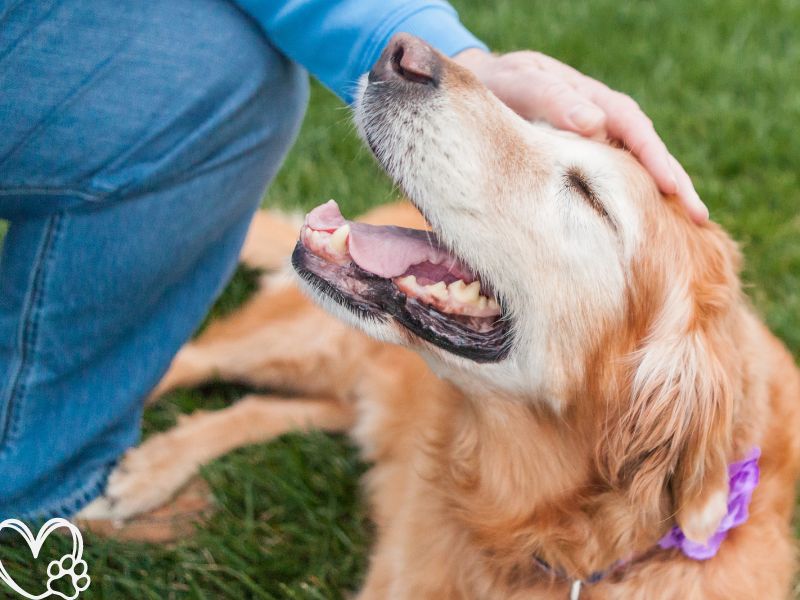As a dog owner, keeping your furry friend healthy is a top priority. Understanding common health issues and taking preventive measures can help ensure your canine companion lives a long, happy life. Let’s explore the top 10 health concerns for dogs and learn how to keep them at bay.
1. Dental Disease

Dental problems are incredibly common in dogs, affecting over 80% of adult canines. Poor oral hygiene can lead to gum disease, tooth loss, and even systemic infections. Dental disease is common and can cause pain, tooth loss, and infections that affect the heart, liver, and kidneys.
Prevention tips:
- Regular Brushing: Brush your dog’s teeth regularly with dog-specific toothpaste.
- Dental Chews: Provide dental chews and toys to help reduce plaque buildup.
- Vet Check-ups: Schedule regular dental check-ups with your vet to catch and address issues early.
2. Obesity

Just like humans, dogs can struggle with weight issues. Excess pounds put strain on joints and organs, leading to a host of health problems. Obesity is a prevalent issue among dogs, leading to various health problems such as diabetes, heart disease, and arthritis.
Keeping your pup fit:
- Balanced Diet: Feed your dog a balanced diet appropriate for their age, breed, and activity level.
- Regular Exercise: Ensure your dog gets regular exercise. Daily walks, playtime, and engaging activities help maintain a healthy weight.
- Portion Control: Avoid overfeeding and monitor treats. Use feeding guidelines provided by your vet or pet food manufacturer.
3. Arthritis

As dogs age, joint inflammation becomes more common, causing pain and reduced mobility.
Easing the ache:
- Maintain Healthy Weight: Keep your dog at a healthy weight to reduce stress on joints.
- Regular Exercise: Provide moderate, low-impact exercise to keep joints flexible.
- Supplements: Consider joint supplements like glucosamine and chondroitin after consulting your vet.
4. Skin Allergies

Dogs can suffer from allergies caused by food, environmental factors, parasites or seasonal changes. Itchy skin and hot spots can make your dog miserable.
Soothing solutions:
- Hypoallergenic Diet: If your dog has food allergies, switch to hypoallergenic dog food.
- Regular Cleaning: Keep your home clean to reduce dust and allergens. Regularly wash your dog’s bedding.
- Vet Advice: Consult your vet to identify allergens and get appropriate treatments.
5. Ear Infections

Particularly susceptible to ear infections are breeds with lop ears, but realistically any dog can suffer from this painful condition. Ear infections can be caused by bacteria, yeast, allergies or ear mites.
Keeping ears healthy:
- Regular Cleaning: Clean your dog’s ears regularly with vet-approved ear cleaners.
- Dry Ears: Keep your dog’s ears dry, especially after baths or swimming.
- Vet Check-ups: If your dog shows signs of an ear infection (scratching, head shaking, odor), consult your vet promptly.
6. Urinary Tract Infections (UTIs)

Urinary tract infections can cause discomfort and lead to more serious kidney problems if left untreated. They often cause pain and difficulty urinating.
Preventing UTIs:
- Hydration: Ensure your dog drinks plenty of water to flush out bacteria.
- Regular Bathroom Breaks: Provide frequent opportunities for your dog to urinate.
- Hygiene: Keep your dog’s genital area clean, especially after walks and outdoor activities.
- Vet Visits: If you notice signs of a UTI (frequent urination, blood in urine, straining), consult your vet promptly.
7. Parasites

Fleas, ticks, and worms can wreak havoc on your dog’s health, causing everything from skin irritation to serious diseases.
Parasite protection:
- Regular Treatments: Use veterinarian-recommended flea, tick, and worm prevention treatments.
- Clean Environment: Keep your dog’s living area clean and vacuum regularly.
- Regular Check-ups: Regularly check your dog’s coat and skin for signs of parasites and visit your vet for routine screenings.
8. Cancer

Cancer is one of the leading causes of death in older dogs, with various forms affecting different organs. While not all cancers are preventable, early detection can significantly improve outcomes.
Vigilant care:
- Regular Vet Check-ups: Early detection through regular vet visits can significantly improve outcomes.
- Healthy Lifestyle: Maintain a healthy diet and exercise routine for your dog.
- Avoid Toxins: Keep your dog away from known carcinogens like tobacco smoke and certain chemicals.
9. Heart Disease

Certain breeds are more susceptible to heart problems, but all dogs can benefit from heart-healthy habits. Heartworm is a serious and potentially fatal condition caused by parasitic worms living in the heart and lungs.
Cardiac care:
- Preventive Medication: Use heartworm prevention medication as recommended by your vet.
- Regular Testing: Have your dog tested for heartworm annually.
- Reduce Exposure: Minimize your dog’s exposure to mosquitoes, especially in heartworm-prone areas.
10. Diabetes

Like humans, dogs can develop diabetes, leading to a range of health complications if not managed properly. Diabetes is a serious condition that affects a dog’s ability to regulate blood sugar levels.
Diabetes defense:
- Healthy Diet: Feed a balanced, low-sugar diet.
- Regular Exercise: Ensure your dog gets regular exercise to maintain a healthy weight.
- Regular Vet Check-ups: Regular blood tests can help detect diabetes early.
By staying informed and proactive about these common health issues, you can help your canine companion live their best life. Remember, regular vet check-ups are the cornerstone of good health, allowing for early detection and treatment of potential problems. With love, attention, and proper care, you can ensure your furry friend remains by your side for years to come.



[…] worth knowing how to prevent heartworm and what to do if your dog ever tests positive. Preventative meds are usually pretty […]